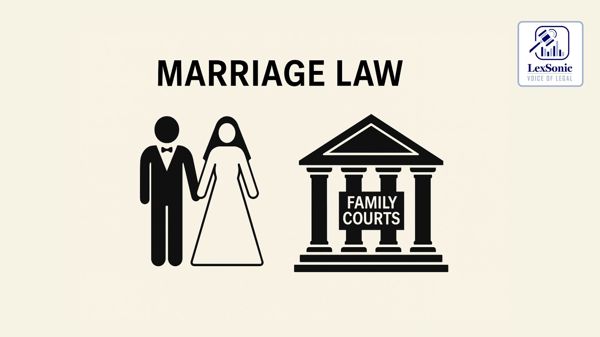Bombay High Court Dismisses Election Petition Over Disclosure of Second Spouse.
23 June 2025
Hindu Marriage Act >> Marriage Law
In a significant ruling on June 23, 2025, the High Court of Judicature at Bombay dismissed an election petition challenging the victory of Rajendra Dhedya Gavit in the General Election 2024. The petition, filed by Sudhir Brijendra Jain, a social activist, sought to declare Gavit's election void primarily due to the disclosure of his second spouse, Smt. Rupali Gavit, in Form-26 of his nomination affidavit.
The petitioner contended that the inclusion of "Spouse No. 2" in Form-26 was not only incorrect but also violated Rule 4A of the Conduct of Election Rules, 1961, as the Hindu Marriage Act, 1955, would render such a second marriage void. This act, according to the petitioner, constituted a corrupt practice under Section 123(4) of the Representation of People Act, 1951 (the Act), and warranted nullification of the election under Sections 100(1)(b), 100(1)(d)(i), and 100(1)(d)(iv) of the Act. The petitioner further argued that the false declaration was made to unduly influence tribal voters in the constituency.

In response, Rajendra Dhedya Gavit, through his counsel Mr. Gangal, sought the outright rejection of the election petition. Mr. Gangal argued that the petition lacked a concise statement of material facts and failed to establish a cause of action. He asserted that the mere voluntary addition of a column for true disclosure in Form-26 could not be a valid ground for declaring an election void, especially since Section 33B of the Act does not mandate disclosure of information not explicitly required by the Act and Election Rules.
Crucially, Mr. Gangal pointed out that Section 2 of the Hindu Marriage Act, 1955, is inapplicable to tribal persons like Mr. Gavit, who belongs to the Bhil Community, where polygamy is customary. He emphasized that Gavit's disclosure reflected honesty. Supporting this stance, Mr. Gangal cited precedents such as
Union of India v. Association for Democratic Reforms and People's Union for Civil Liberties v. Union of India, which underscore the importance of candidate disclosure to voters and the illegality of restrictions on such information.
The High Court, presided over by Justice Sandeep V. Marne, meticulously examined the arguments within the framework of Sections 100 and 83 of the Representation of People Act, 1951, which govern the grounds for declaring an election void and the required contents of an election petition. The court reiterated that strict compliance with the provisions of the Representation of People Act is mandatory for maintaining a valid election petition.
The court ultimately found that the mere act of adding a column in Form 26 for true and honest disclosure of information does not render the nomination defective or constitute a violation of election rules. It further ruled that the election petition lacked a concise statement of material facts demonstrating how the election result was "materially affected" by the alleged violation of Rule 4A. Consequently, the High Court allowed the application for rejection of the election petition under Order VII Rule 11 of the Code of Civil Procedure, 1908.
